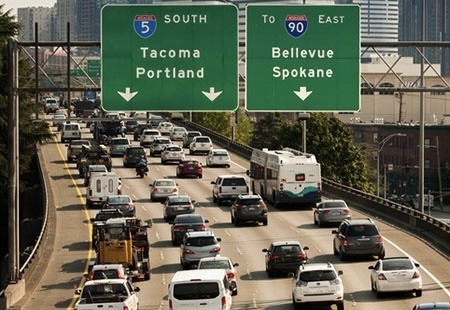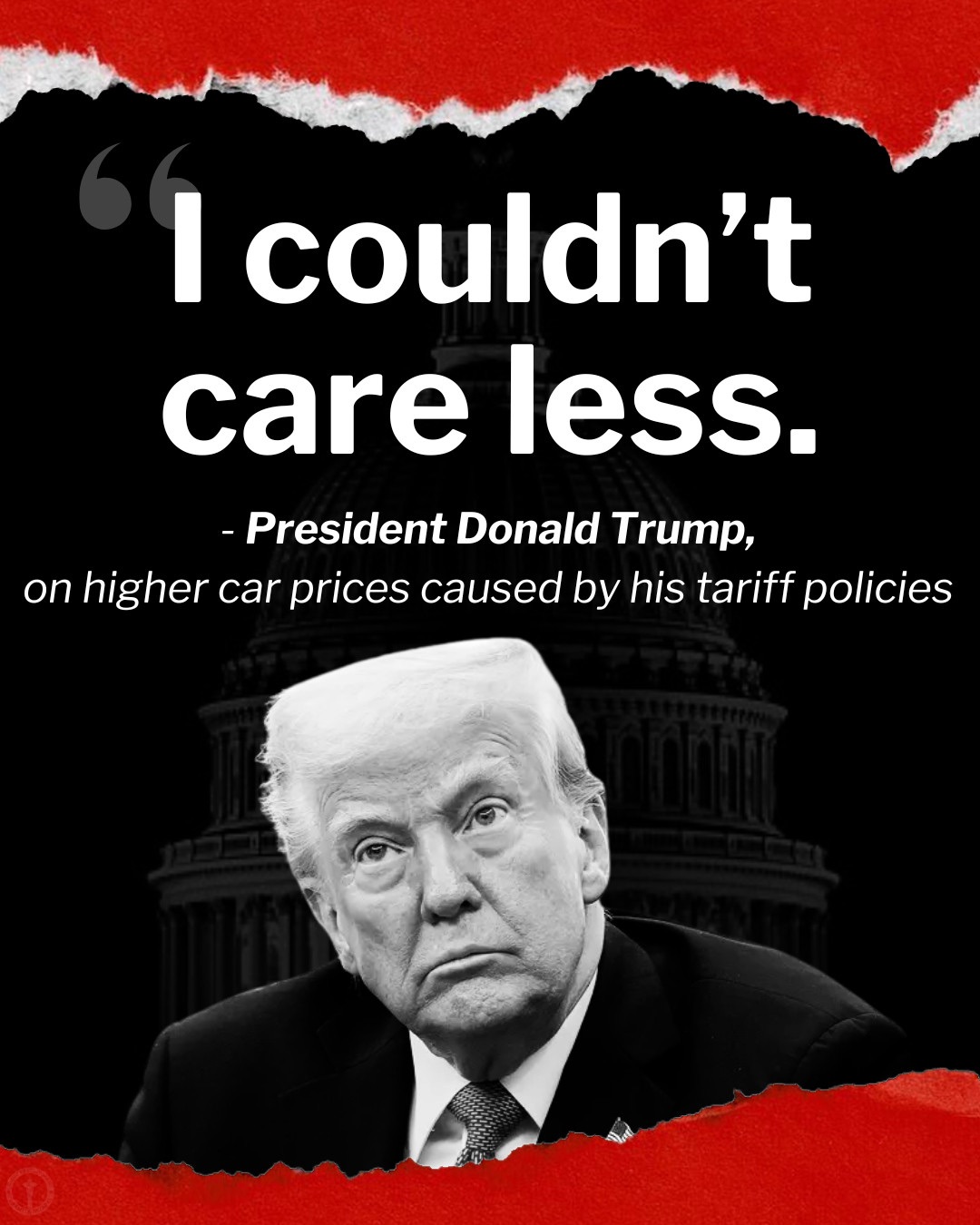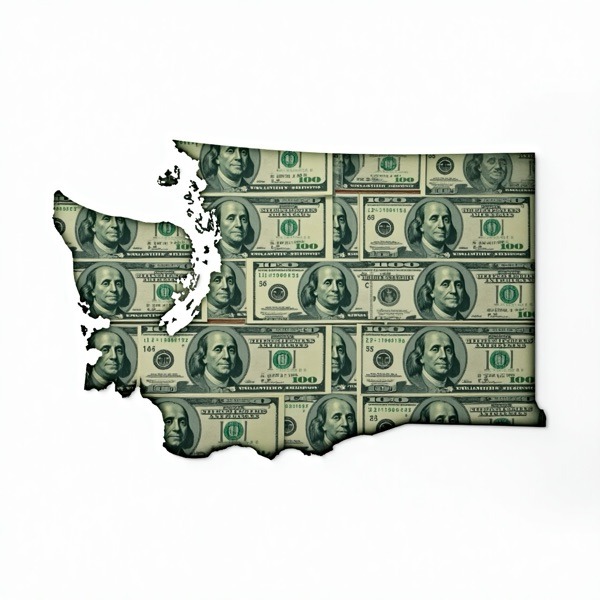Washington State is facing a financial challenge. Like many states, we need to find ways to generate more revenue to support vital services like schools, healthcare, and public safety. One solution that makes a lot of sense is to increase fees on commercial trucks using Washington’s highways—especially those coming from states with lower labor and environmental standards. This policy could not only raise money for the state but also help protect our environment and make the state more fair for workers.
First, let’s look at why this is important. Commercial trucks carry goods across the country, often traveling through several states to deliver products. Some of these trucks come from states with fewer protections for workers, lower wages, and looser environmental rules. These trucks often use our highways without paying a fair share of the costs they create, like wear and tear on the roads and increased pollution in our communities. If these companies pay a little more to drive on our roads, Washington can use the money to maintain infrastructure and improve services.
One reason this approach is fair is that many of these out-of-state companies don’t follow the same high standards for workers and the environment that we have here in Washington. For example, Washington has strong labor laws that ensure workers get fair wages, benefits, and protections. However, in some other states, these protections are weaker, and workers don’t have the same rights or pay. By increasing fees on trucks coming from those states, we can level the playing field and ensure that businesses operating in Washington are held to the same high standards.
Additionally, Washington has some of the strictest environmental laws in the country, especially when it comes to air quality and reducing emissions. Trucks are a major source of air pollution, contributing to climate change and harming the health of communities. Many of the trucks from out-of-state companies may not be as clean or fuel-efficient as those required by Washington’s regulations. By increasing the fees on these trucks, we can encourage companies to adopt greener technology or even push for cleaner trucks to travel through Washington.
Raising fees on these commercial trucks could also help fund much-needed infrastructure improvements. Our roads and highways are often under pressure from the heavy traffic brought by commercial trucks. The wear and tear caused by these trucks can lead to expensive repairs and maintenance. By charging higher fees to trucks that contribute most to this damage, we can make sure the funds go directly toward maintaining and improving our roads, so they stay safe and functional for all drivers.
Another important reason for increasing truck fees is to make sure Washington’s economy is fair and balanced. Many businesses in Washington already follow strict environmental and labor laws, so when out-of-state companies are allowed to bypass these rules, they have an unfair advantage. They can undercut local businesses that do follow the rules by cutting costs on labor and emissions. Increasing fees on trucks from states with lower standards would help level the playing field, giving local businesses a fairer shot.
Some might argue that raising fees on trucks will make goods more expensive. While it’s true that some costs could be passed down to consumers, there are also benefits that might outweigh these costs. For example, cleaner air and safer roads will improve the overall quality of life for Washington residents. Plus, by investing in infrastructure and local businesses, we help create a stronger, more sustainable economy that benefits everyone in the long run.
Critics of this proposal may claim that it will hurt out-of-state businesses or lead to fewer trucks traveling through Washington. However, if we design the fee structure correctly, we can ensure that it’s fair and balanced, allowing companies to continue operating while encouraging them to improve their environmental and labor practices. In fact, businesses that want to operate in Washington’s thriving market may see this as an opportunity to improve their operations, invest in cleaner technology, and create better jobs for their workers.
The idea of raising fees on trucks from out-of-state companies isn’t new. Other states have already implemented similar policies to help fund infrastructure and protect the environment. California, for example, has taken steps to charge higher fees for trucks that don’t meet their strict emissions standards. These policies have helped raise much-needed revenue while also improving air quality and encouraging better practices in the trucking industry.
Finally, it’s important to remember that Washington State is a leader when it comes to both environmental protection and workers’ rights. By raising fees on trucks from states with lower standards, we are not only ensuring that those who use our roads contribute fairly, but we are also protecting the values that make Washington a special place to live. A fair economy, clean air, and safe roads are goals we can all get behind.
In conclusion, increasing fees on commercial trucks from states with lower labor and emissions standards is a smart and fair way to generate revenue for Washington. It will ensure that out-of-state companies contribute their fair share, protect our environment, and help improve our infrastructure. By implementing this policy, we can create a more equitable, sustainable, and prosperous future for everyone in Washington.





